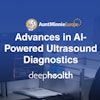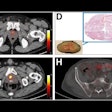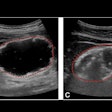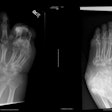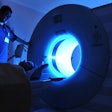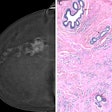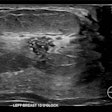
NEW YORK (Reuters Health), Apr 14 - Use of platelet aggregation inhibitors, particularly aspirin, is related to the presence of cerebral microbleeds in lobar brain sites, a Dutch research team reports in the Archives of Neurology, published online on April 13.
Cerebral lobar microbleeds are markers of small-vessel amyloid angiopathy, which tends to predispose vessels to rupture and hemorrhage, explain Dr. Monique M. B. Breteler and associates at the Erasmus MC University Medical Center in Rotterdam.
To see if antithrombotic drug use is related to cerebral microbleeds, the investigators obtained MRI scans from 1,062 subjects, 61-97 years of age. Of these, 250 showed evidence of cerebral microbleeds, including 145 that were strictly lobar in location.
A total of 245 subjects had exclusively used platelet inhibitors during the years prior to the study, primarily aspirin (n = 67) or carbasalate calcium (Ascal, n = 141). Anticoagulant drugs were used exclusively by 61 subjects (vitamin K antagonists, n = 51; heparin, n = 5).
In analyses controlling for age, sex, and risk profile, platelet inhibitors, but not anticoagulants, were significantly associated with any microbleed (odds ratio 1.71).
In terms of strictly lobar microbleeds, aspirin at a mean prescribed daily dose of 89 mg was significantly associated with an odds ratio of 2.70, but carbasalate calcium (daily dose equivalent to 58 mg aspirin) was not. At equivalent dosages, aspirin users were at nearly four times the risk of lobar microbleeds compared with carbasalate calcium users.
"Well-indicated antithrombotic drugs in persons at risk for myocardial infarction or ischemic cerebrovascular disease should not be disregarded because these have been shown to outweigh any risks of bleeding," Dr. Breteler's team advises.
"Nevertheless, it may be that in selected persons (e.g., those with signs of cerebral amyloid angiopathy), this risk-benefit ratio may differ for certain drugs (e.g., aspirin), thus influencing treatment decisions."
They note that longitudinal research is needed to verify the observed association, and to see "whether the presence of microbleeds increases the risk of symptomatic intracerebral hemorrhage in persons using antithrombotic medication."
Arch Neurol 2009;66.
Last Updated: 2009-04-13 16:00:29 -0400 (Reuters Health)
Related Reading
Regular aspirin may lower colon cancer risk in men, February 12, 2008
Copyright © 2009 Reuters Limited. All rights reserved. Republication or redistribution of Reuters content, including by framing or similar means, is expressly prohibited without the prior written consent of Reuters. Reuters shall not be liable for any errors or delays in the content, or for any actions taken in reliance thereon. Reuters and the Reuters sphere logo are registered trademarks and trademarks of the Reuters group of companies around the world.


